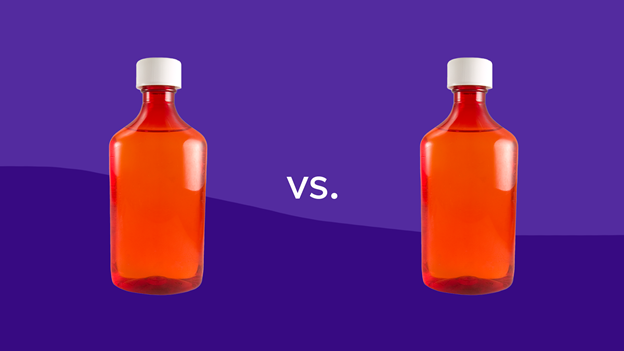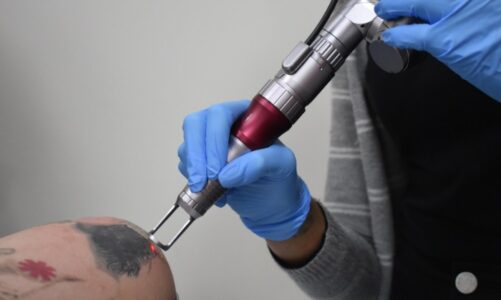Robitussin and Mucinex are two distinct over-the-counter solutions designed to alleviate chest congestion, with each product featuring unique active ingredients tailored to address various symptoms encompassing cough and congestion.
The principal active component in Robitussin is dextromethorphan, while Mucinex relies on guaifenesin as its key ingredient. However, it’s important to note that the DM iteration of both medications contains a combination of these two active ingredients.
So, what sets apart these active ingredients? Why might one medication be a more suitable choice for your specific needs? Let’s delve into a comparative analysis of these medications to facilitate your decision-making process.
Comparison: Robitussin vs. Mucinex
Robitussin offers a variety of formulations, including:
– Robitussin 12 Hour Cough Relief (dextromethorphan)
– Children’s Robitussin 12 Hour Cough Relief (dextromethorphan)
– Robitussin 12 Hour Cough & Mucus Relief (dextromethorphan and guaifenesin)
– Robitussin Cough + Chest Congestion DM (dextromethorphan and guaifenesin)
– Robitussin Maximum Strength Cough + Chest Congestion DM (dextromethorphan and guaifenesin)
– Children’s Robitussin Cough & Chest Congestion DM (dextromethorphan and guaifenesin)
Mucinex is available under the following product names:
– Mucinex (guaifenesin)
– Maximum Strength Mucinex (guaifenesin)
– Children’s Mucinex Chest Congestion (guaifenesin)
– Mucinex DM (dextromethorphan and guaifenesin)
– Maximum Strength Mucinex DM (dextromethorphan and guaifenesin)
– Maximum Strength Mucinex Fast-Max DM (dextromethorphan and guaifenesin)
How they work
The active ingredient shared by Robitussin and Mucinex DM products, dextromethorphan, serves as an antitussive, effectively suppressing the urge to cough. It proves particularly helpful in reducing coughing episodes brought on by minor irritation within the throat and lungs, potentially aiding in achieving restful sleep.
Guaifenesin, present in Mucinex, Robitussin DM, and Robitussin 12 Hour Cough & Mucus Relief, functions as an expectorant by thinning the mucus lodged within the air passages. Once thinned out, the mucus becomes less viscous, facilitating its expulsion through coughing.
Varieties and Dosage
Robitussin and Mucinex offer both oral liquids and oral tablets in their product range, tailored to the specific formulation. Additionally, Robitussin is available in liquid-filled capsules, while Mucinex extends to oral granules marketed as mini-melts. The appropriate dosage varies according to the form of the medication; consult the package instructions for precise dosing information.
Individuals aged 12 and above are eligible to use both Robitussin and Mucinex, catering to a wide age range.
For children aged 4 and older, several products are available, including:
– Robitussin 12 Hour Cough Relief (dextromethorphan)
– Children’s Robitussin 12 Hour Cough Relief (dextromethorphan)
– Children’s Robitussin Cough & Chest Congestion DM (dextromethorphan and guaifenesin)
– Children’s Mucinex Chest Congestion (guaifenesin)
Considerations During Pregnancy and Breastfeeding
Expectant or nursing mothers should engage in a conversation with their healthcare provider before incorporating either medication into their regimen. While dextromethorphan, present in both Robitussin and Mucinex DM, might be considered safe during pregnancy, it’s prudent to consult a healthcare professional prior to usage. Furthermore, more research is needed to ascertain the safety of dextromethorphan while breastfeeding.
Guaifenesin, the active ingredient in Mucinex and select Robitussin products, lacks sufficient testing in pregnant or breastfeeding women.
Potential Side Effects
When adhering to recommended dosages, occurrences of side effects stemming from dextromethorphan and guaifenesin are infrequent. However, possible side effects encompass:
– Nausea
– Vomiting
– Dizziness
– Stomach pain
Additionally, dextromethorphan, present in Robitussin and Mucinex DM, has the potential to induce drowsiness.
Guaifenesin, the active ingredient in Mucinex and Robitussin DM, may lead to:
– Diarrhea
– Headache
– Hives
It’s crucial to recognize that not everyone encounters side effects when using Robitussin or Mucinex, and in cases where they do manifest, they typically abate as the body becomes acclimated to the medication. Persistent or troublesome side effects warrant a consultation with a healthcare professional.
Possible Interactions
If you have ingested a monoamine oxidase inhibitor (MAOI) within the previous two weeks, avoid the use of medications containing dextromethorphan, such as Robitussin and Mucinex DM. MAOIs encompass antidepressants like isocarboxazid (Marplan) and tranylcypromine (Parnate). Guaifenesin, on the other hand, doesn’t present substantial interactions with other drugs.
In cases where you are taking additional medications or supplements, it’s prudent to confer with your healthcare provider or pharmacist before incorporating Robitussin or Mucinex into your routine. These medications might influence the effectiveness of other substances.
Lastly, it’s imperative to avoid concurrent consumption of Robitussin and Mucinex products containing identical active ingredients. This practice not only fails to expedite symptom relief but can also precipitate an overdose.
An overabundance of guaifenesin could lead to nausea and vomiting, while excessive dextromethorphan consumption might result in symptoms such as:
– Dizziness
– Constipation
– Dry mouth
– Accelerated heart rate
– Drowsiness
– Impaired coordination
– Hallucinations
– Rare cases of coma
A 2014 case study suggested that a surplus of guaifenesin and dextromethorphan could potentially trigger kidney failure.
Advice from Pharmacists
The market features diverse products labeled as Robitussin and Mucinex, many of which may integrate alternative active ingredients. It’s crucial to carefully examine labels and ingredient lists to identify the most appropriate option for managing your specific symptoms. These medications should be utilized solely as directed.
Should your cough persist for more than a week or if you experience additional symptoms like fever, rash, or chronic headache, discontinue usage and consult a medical professional.
Conclusion
Standard Robitussin and Mucinex products stand apart with their unique active ingredients, each tailored to address distinct symptoms.
For singular cough relief, individuals might gravitate toward Robitussin 12 Hour Cough Relief, which exclusively contains dextromethorphan.
On the contrary, to tackle congestion, Mucinex or Maximum Strength Mucinex, containing only guaifenesin, serve as suitable options.
The DM variants of both products possess identical active ingredients and are available in liquid and tablet forms. This dual combination of dextromethorphan and guaifenesin effectively mitigates coughing while promoting the thinning of lung mucus.




